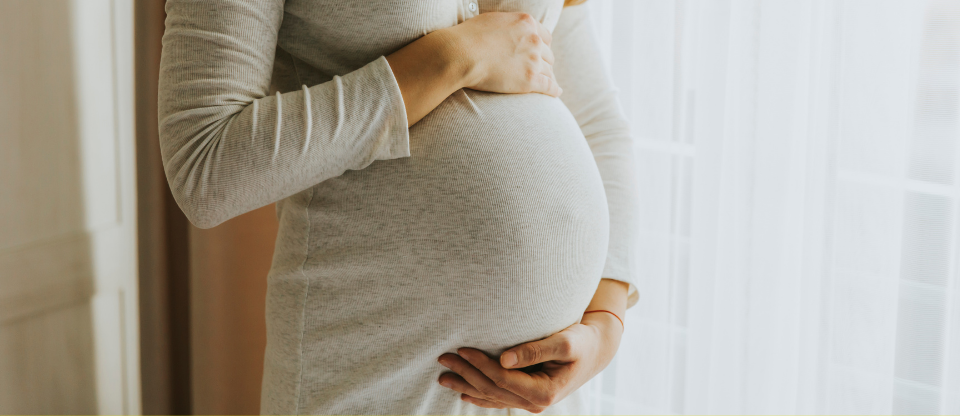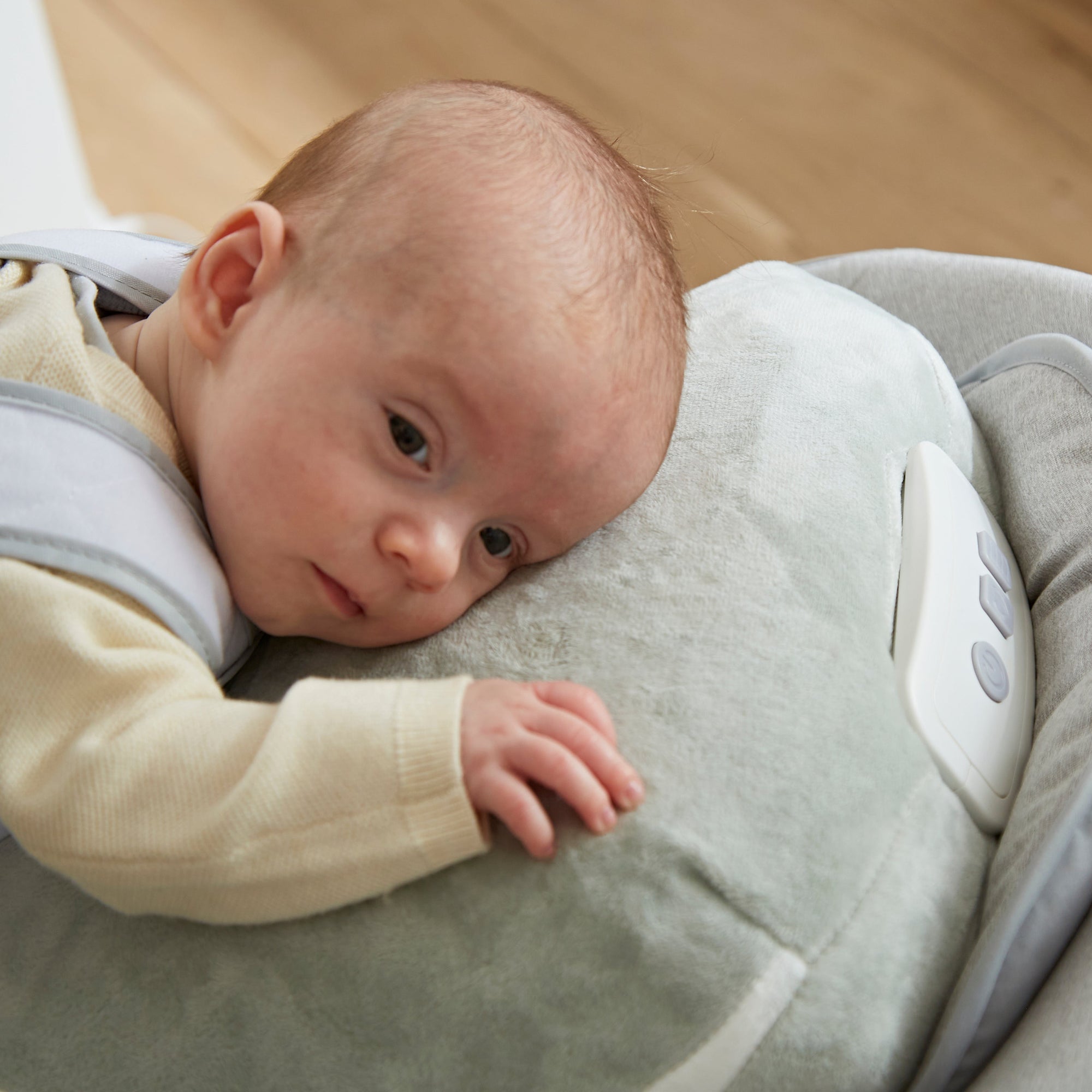Colic and gastroesophageal reflux (GER) are two conditions that can cause significant distress in infants, often leading to prolonged periods of crying, fussiness, and discomfort. Colic, although its precise cause remains a mystery, is characterized by episodes of intense crying or fussiness in an otherwise healthy baby.
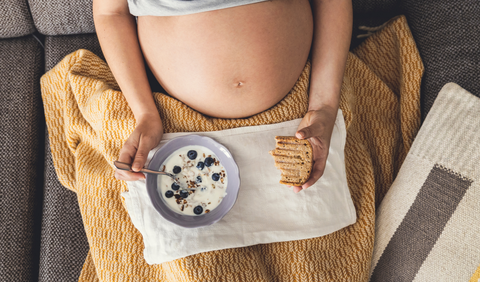
These episodes can last for hours at a time and may occur for no apparent reason. Theories suggest that colic may be linked to digestive discomfort, possibly due to the immaturity of the baby's digestive system or sensitivities to certain foods or formulas. On the other hand, reflux involves the backward flow of stomach contents into the esophagus, which can cause symptoms such as spitting up, vomiting, and general discomfort.
This condition is attributed to the underdevelopment of the lower esophageal sphincter, which normally acts to prevent such backflow. Both colic and reflux are common in infants and can be a source of considerable anxiety and helplessness for parents as they strive to soothe their distressed child.
The Role of Maternal Diet in Preventing Colic and Reflux
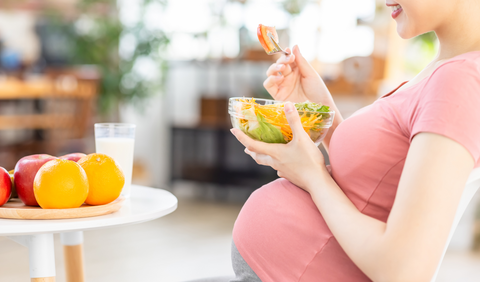
The diet of a pregnant woman plays a crucial role in the health and development of her baby, including the potential impact on conditions like colic and reflux.
Certain foods and beverages consumed during pregnancy can influence the likelihood and severity of these conditions in the newborn. For instance, a diet high in specific allergens, such as dairy, soy, or wheat, may increase the risk of digestive issues in the baby, potentially leading to symptoms associated with colic and reflux.
Additionally, the consumption of acidic or spicy foods, caffeine, and alcohol can also have an effect, possibly exacerbating reflux symptoms in infants. By making mindful dietary choices, such as avoiding known allergens and irritants, pregnant women can potentially reduce the risk of these conditions in their babies. It's also suggested that breastfeeding mothers continue to monitor their diet, as certain substances can pass through breast milk and affect the baby. Consulting with a healthcare provider for personalized dietary advice can be beneficial in navigating these considerations and supporting the health and comfort of both mother and baby.
1. High Mercury Fish
Mercury is a highly poisonous substance. It is most typically found in dirty water and has no known safe amount of exposure. It can be hazardous to your neurological system, immunological system, and kidneys in excessive doses. It can also cause major developmental issues in children, even at moderate doses, with negative consequences.
Enormous marine fish can accumulate large quantities of mercury since it is found in polluted seas. As a result, it's advisable to stay away from high-mercury fish while pregnant or nursing.
High-mercury fish you should avoid include:
- shark
- swordfish
- king mackerel
- tuna (especially bigeye tuna)
- Marlin
- tilefish from the Gulf of Mexico
- orange roughy
It's crucial to note, however, that not all fish are high in mercury; just some varieties are. Low mercury fish can be consumed up to three times per week during pregnancy, according to the Food and Drug Administration (FDA). Low mercury fish are plentiful and include anchovies, cod, flounder, haddock, salmon, tilapia and freshwater trout. Fatty fish like salmon and anchovies are especially good options, as they are high in omega-3 fatty acids, which are important for your baby.
2. Undercooked or Raw Fish
This one will be difficult for sushi enthusiasts, but it is crucial. Raw fish, particularly shellfish, can spread a variety of illnesses. Norovirus, Vibrio, Salmonella, and Listeria are examples of viral, bacterial, and parasitic infections. Some of these infections can have a very negative impact and leave you dehydrated and weak. Other infections could be transmitted to your baby, resulting in serious or even deadly effects.
Listeria infections are extremely dangerous for pregnant women. According to the Centers for Disease Control and Prevention (CDC), pregnant women are up to ten times more likely than the general population to become contaminated with Listeria.
This bacteria can be found in soil, contaminated water, and plants, among other places. During processing, such as smoking or drying, raw fish can become contaminated. Even if you don't display any symptoms of disease, listeria germs can be transferred to your baby through the placenta. According to the CDC, this can result in premature birth, miscarriage, stillbirth, and other major health issues. Raw fish and shellfish, including many sushi dishes, should be avoided at all costs whilst pregnant.
3. Undercooked, Raw, and Processed Meat
Cook all meat and poultry thoroughly until it is piping hot and no pinkness or blood remains. Take extra caution when handling poultry, pork, sausages, and minced meat, such as burgers.
Rare meat should not be consumed. Wash all surfaces and utensils thoroughly after preparing raw meat. It's also important to remember to wash and dry your hands after touching or handling raw meat. This will help to avoid the spread of harmful bugs such as salmonella, campylobacter and E. coli which can cause food poisoning.
4. Raw Eggs
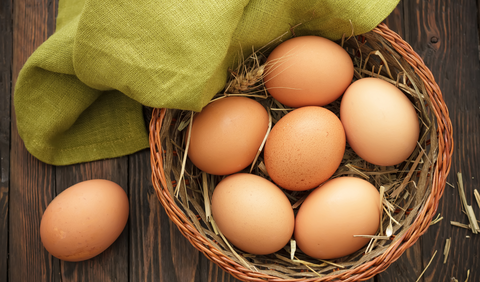
Ensure that your eggs are properly cooked, with solid whites and yolks. Salmonella food poisoning can be avoided as a result of this. Foods containing raw or undercooked eggs, such as homemade mayonnaise, should be avoided. Consider using pasteurised liquid egg if you want to make recipes with raw or partially cooked eggs. Use only fresh eggs that aren't broken or soiled.
5. Caffeine
According to the American College of Obstetricians and Gynecologists, pregnant women should limit their caffeine intake to fewer than 200 milligrammes (mg) per day. Caffeine is quickly absorbed and easily passed into the placenta. Because newborns and their placentas lack the key enzyme required for caffeine metabolism, excessive quantities can accumulate.
Caffeine consumption during pregnancy has been shown to limit fetal growth and raise the risk of delivering a baby with a low birth weight. Low birth weight, defined as less than 5 pounds, 8 ounces, is linked to an increased risk of infant death and adult chronic disease.
6. Raw Sprouts
Your healthy salad option may also contain some nasties. Salmonella can be found in raw sprouts such as alfalfa, clover, radish, and mung bean sprouts. These bacteria thrive in the humid atmosphere that seeds require to sprout. As a result, raw sprouts should be avoided at all costs. Sprouts that have been cooked, on the other hand, are okay to eat, according to the FDA.
7. Unwashed Produce
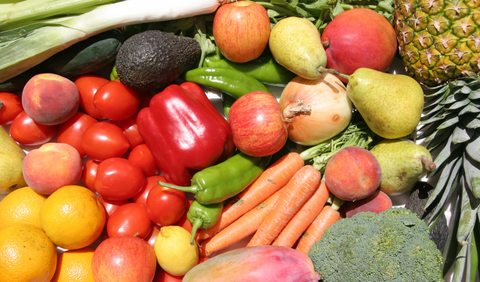
Several germs and parasites can be found on the surface of unwashed or unpeeled fruits and vegetables. Toxoplasma, E. coli, Salmonella, and Listeria are among the bacteria that can be obtained through the soil or by handling. Contamination can happen at any point throughout the manufacturing, harvesting, processing, storage, transit, or retail process. Toxoplasma is a deadly parasite that can remain on fruits and vegetables.
The majority of people who contract toxoplasmosis have no symptoms, but some may experience flu-like symptoms for a month or more. When a baby is infected with the Toxoplasma bacteria while still in the womb, they usually have no symptoms when they are born. Symptoms such as blindness or intellectual disability, on the other hand, may appear later in life.
Furthermore, only a small percentage of those afflicted are infected. It's critical to wash fruits and vegetables well with water, peel them, or boil them when you're pregnant to reduce the danger of infection.
8. Unpasteurized Milk, Cheese & Fruit Juice
Listeria, Salmonella, E. coli, and Campylobacter are all bacteria that can be found in raw milk, unpasteurized cheese, and soft-ripened cheeses. Unpasteurized juice, on the other hand, is prone to bacterial infection. For an unborn baby, any of these infections can be life-threatening.
Bacteria can arise spontaneously or as a result of contamination during the collection or storage process. Pasteurization is the most efficient method to destroy hazardous germs while maintaining nutritional content. Eat only pasteurised milk, cheese, and fruit juice to reduce the chance of illness.
9. Alcohol
When pregnant, it's best to avoid alcohol completely because it raises the risk of miscarriage and stillbirth. Even a modest amount of alcohol might hurt your child's brain development. Fetal alcohol syndrome, which includes facial deformities, heart issues, and intellectual incapacity, can be caused by drinking alcohol during pregnancy. Because no amount of alcohol has been demonstrated to be safe during pregnancy, it's best to stay away from it entirely.
10. Processed Junk Foods
There's no better time than during pregnancy to begin eating nutrient-dense meals that will benefit both you and your growing baby. The consumption of many vital nutrients, such as protein, folate, choline, and iron, should be increased. The idea that you're "eating for two" is a bit of a misconception; you can eat as usual during the first semester, then increase your caloric intake by around 350 calories per day in the second trimester and 450 calories per day in the third trimester.
A healthy pregnancy diet should primarily consist of whole foods with sufficient nutrients to meet your and your baby's nutritional needs. Processed junk food is high in calories, sugar, and added fats and lacks nutrition. While some weight increase is normal during pregnancy, excessive weight gain has negative health consequences. Stick to meals and snacks that focus on protein, vegetables and fruits, healthy fats, and fiber-rich carbohydrates like whole grains, beans, and starchy vegetables. Don’t worry, there are lots of ways to sneak veggies into your meals without sacrificing taste.
To conclude…
When you're pregnant, it's critical to stay away from foods and drinks that could harm you or your baby. Although lots foods and beverages are absolutely healthy to consume, some should be avoided, such as raw fish, unpasteurized dairy, alcohol, and high-mercury fish.
To support a healthy pregnancy, several foods and beverages, such as coffee and foods high in added sugar, should be avoided.
Related blogs:
